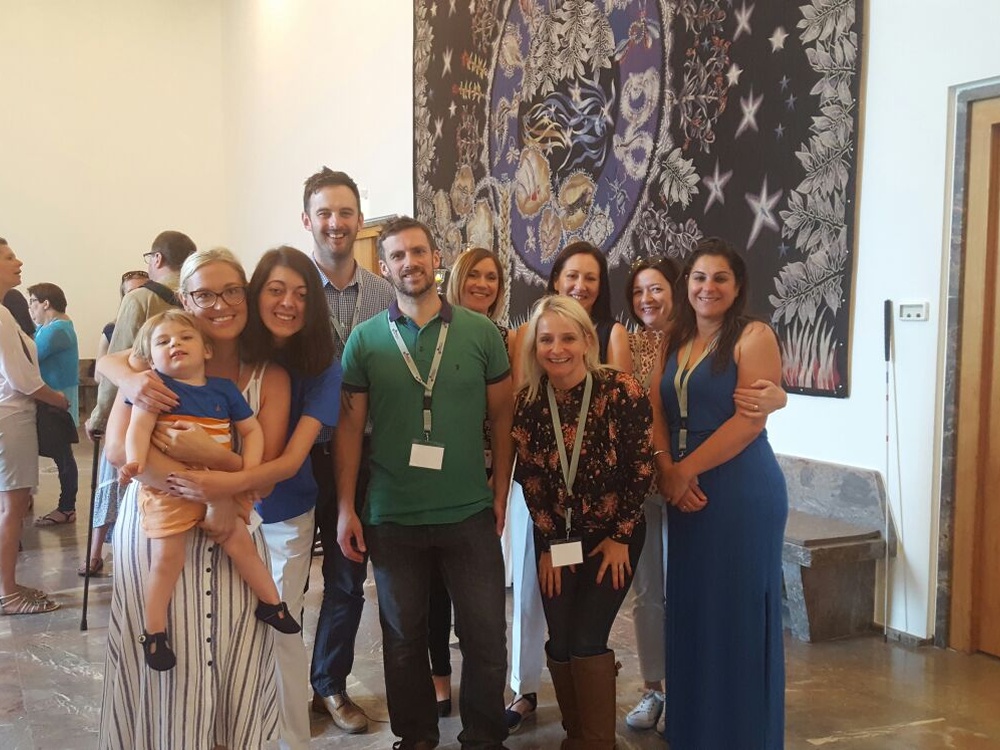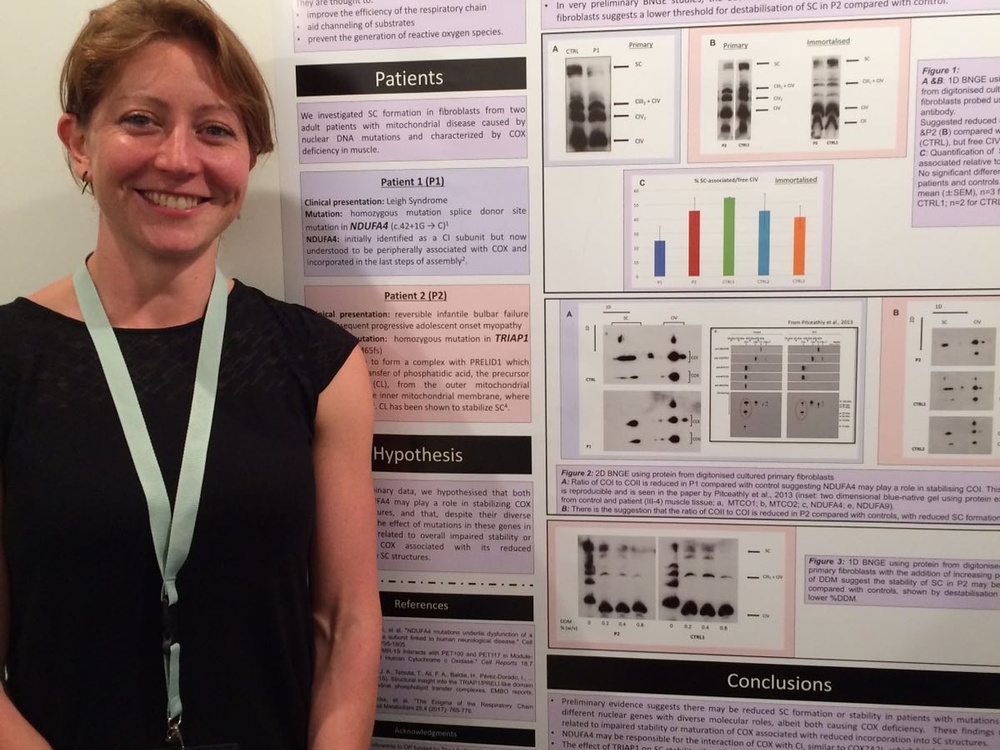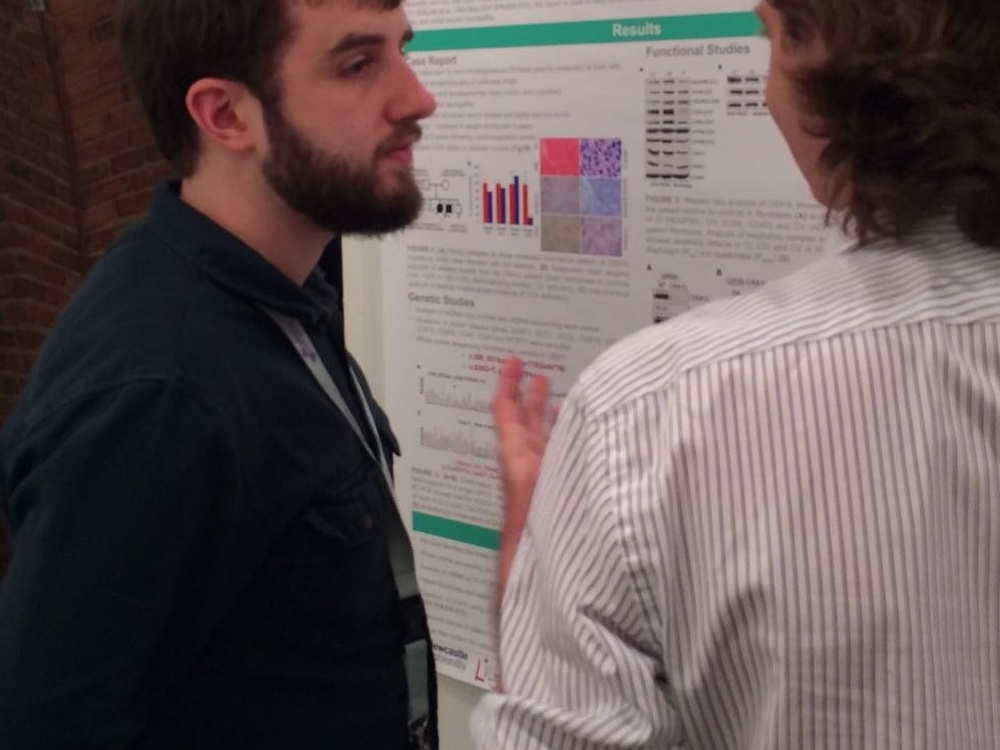Highlights of Euromit 2017
Euromit, one of the largest international meetings on mitochondrial pathology, saw more than 600 scientists arrive in Cologne all with the goal to better understand mitochondrial disease and develop effective treatments. A Patient Meeting ran alongside the scientific conference, which provided an opportunity for international patients and families affected by mitochondrial diseases to meet and share information with each other and the researchers.
The programme included a combined session called ‘Living with mitochondrial disease’ in which Shanalle Bacarese-Hamilton shared the story of her daughter’s journey with mitochondrial disease, whilst Rachael Wells shared her own experience of mitochondrial disease and showed an amazing film she had made called ‘Living with mito’. Both speakers were absolutely incredible and had the entire audience captivated!
State of the art in the diagnosis of mitochondrial diseases
The first talk of the Patient Meeting was given by Dr Holger Prokisch who discussed the diagnosis of mitochondrial disease and how this is changing. This is mainly due to the introduction of techniques that allow disease-causing genes to be identified both quickly and relatively cheaply. The techniques include next generation sequencing (NGS) and whole exome sequencing (WES), both of which can look at thousands of genes at the same time and have increased the number of patients receiving a genetic diagnosis for mitochondrial disease.
Dr Prokisch described some new techniques that are still at the research stage but could be used in the future when sequencing fails to provide a diagnostic result. These additional techniques involve looking at what is produced by the genes, rather than the sequence of the genes themselves, to try and identify changes that could be causing mitochondrial disorders.
New therapies, current trials, future developments
Another talk in the Patient Meeting was given by Dr Thomas Klopstock who gave an overview of potential therapies and current clinical trials for mitochondrial disease. Dr Klopstock said that the “therapeutic era in mitochondrial medicine had begun” and provided lots of good news around the treatment of mitochondrial diseases. This included approval of the first drug for a mitochondrial disease (Idebenone for the treatment of LHON) and faster rates of drug development leading to clinical trials.
He did stress the importance of high-quality trials and how recruiting patients to these trials is difficult. This highlights the need for a global patient registry, which would speed up the transition from drug discovery to health benefits for patients with a mitochondrial disease diagnosis. The Lily Foundation are actively working with researchers and patient groups around the world to make this happen.
Mitochondrial replacement: state of the art
Another talk in the Patient Meeting was given by Prof Sir Doug Turnbull, Prof Bobby McFarland and Dr Grainne Gorman who gave an update on the imminent clinical use of mitochondrial donation in the UK. This included a brief account of the law change that was required to allow the use of mitochondrial donation in the UK and we were proud that one of our Lily Foundation videos was shown!
The Newcastle team highlighted the importance of patient care and support when making reproductive choices to reduce the risk of mitochondrial disease. They also described a new specialised clinical service that aims to provide information and advice on the reproductive options available to women with mitochondrial disease. The importance of long-term follow-up of any children born by mitochondrial donation was also discussed, along with a care pathway that has been put in place to do this.
General
The meeting was a wonderful opportunity to meet families from around the world and hear about the latest research into mitochondrial disease. It was also great to see so many research posters, including those by Lily-funded researchers Dr Olivia Poole and Dr Kyle Thompson.



